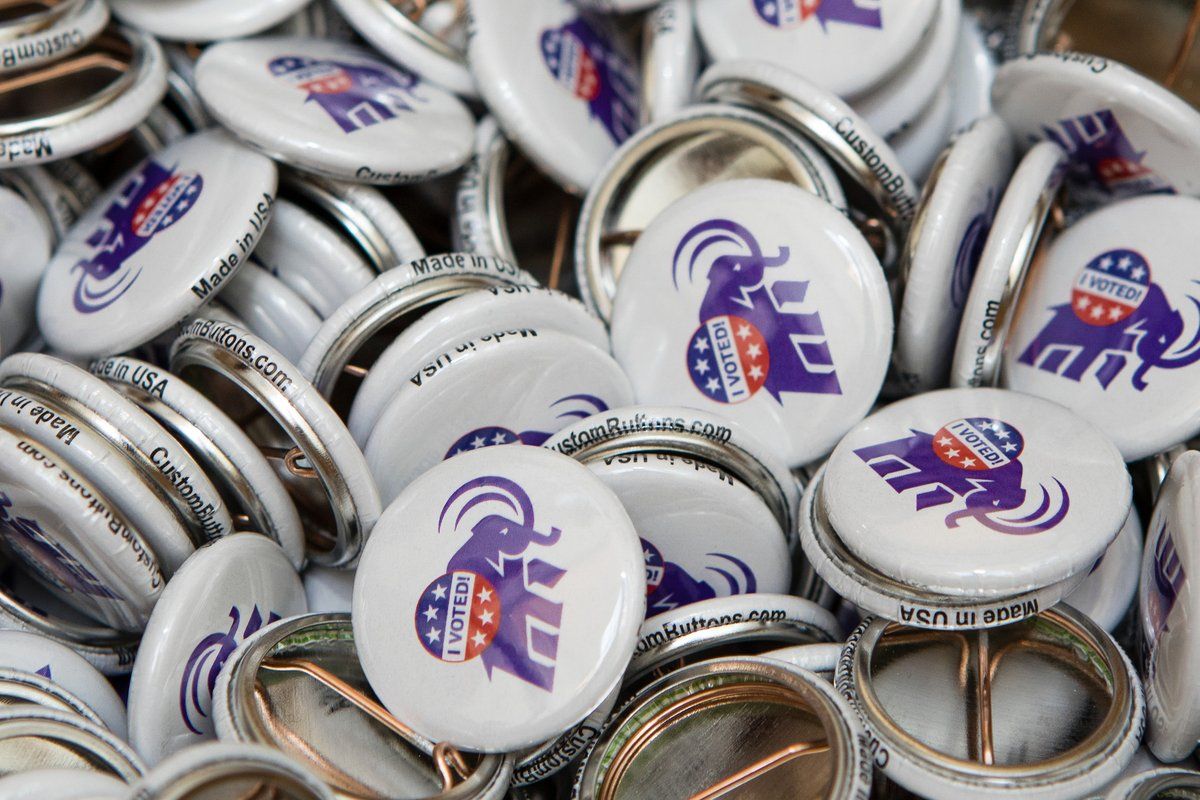Administration Takes Over AC Votes Ahead of November Election
AC Votes, a get-out-the-vote operation formerly run by students, is now part of The Center for Community Engagement. Student participants touted the stability of the new arrangement, but former leaders said the change was poorly communicated to them.

As of this school year, AC Votes, the most prominent get-out-the-vote effort on campus, is no longer completely student-run. Instead, it falls under the Center for Community Engagement’s (CCE) purview. Previous leaders of AC Votes said the transition was poorly communicated to them.
Maida Ives, the associate director of community partnerships and civic engagement, now oversees AC Votes through its effort to register students to vote in November. She attributes the transition to the CCE’s increased staff, which allows it to manage voter registration, and supervise three paid student workers and student volunteers.
Graham Quigley ’25, the former president of AC Votes, said that the administration wanted to eliminate the organization's previous instability, so that they would not “have to rely on students transitioning out and transition[ing] in.”
Similarly, Alex McIntosh ’26 — one of the three paid student workers at AC Votes — said that AC Votes faced the problem of “a lack of institutional memory.”
“They want to make sure that best practices are being kept over time and that we’re learning from what we’ve done in the past, preventing it from being a situation where every two years we need to completely start from scratch,” McIntosh said.
Quigley, who was abroad in the spring of 2024, said that the decision to transition was likely made during that time.
Regardless, Quigley says he was not asked about this decision. He was notified in August about the transition.
“I would have appreciated more insight into the change,” Quigley said.
Claire Holding ’26, a member of AC Votes who wasn’t notified of the transition until she read about it in the Daily Mammoth, echoed Quigley’s sentiment.
“I think there’s been a lot of confusion and frustration that we don’t know what’s going on, and we don’t feel like we have any agency over it anymore,” she said.
McIntosh, however, downplayed these concerns. “On the one hand, there’s not that much to have authority over,” he said. “What we’re doing, really, is tabling and putting together materials to get people registered to vote.”
Under CCE leadership, AC Votes leadership will likely find it easier to secure funds. Quigley said that AC Votes’ lack of registered student organization (RSO) status made funding its operations difficult.
“We couldn’t go through the AAS to get funding, and most of the time we’d have to be in constant contact with the administration to get a lot of the things that we wanted to get done, done,” he said.
AC Votes’ efforts were targeted only in the fall, something that Quigley was trying to change, and he believes that is partly why the administration stepped in.
While he thinks that the change can be “very good,” Quigley is concerned that “part of the student-run aspect of the organization could be lost.”
Holding expressed a concern that under the CCE, she does not feel connected to other students. “It used to be an actual club, so I knew everyone in it. Now it’s totally administrative,” she said.
Ives said that the transition has not affected how AC Votes operates. The tabling efforts, Instagram, and emails to students have remained the same.
Ives hosted multiple sign-up opportunities to volunteer for AC Votes at the Get Involved Fair, Student Employment Fair, Gender Resource and Wellbeing fairs. AC Votes also advertised volunteering opportunities in the CCE newsletter and on the AC Votes Website.
It is unclear whether this transition has impacted the number of students involved. Ives does not have the previous figures, and previous AC Votes members do not have access to the current numbers.
Student tabling is “one of the most powerful aspects of AC Votes,” to Quigley. “There’s much more potential for conversation to be struck up between students that know each other than someone in the administration asking, are you registered to vote,” he said.





Comments ()